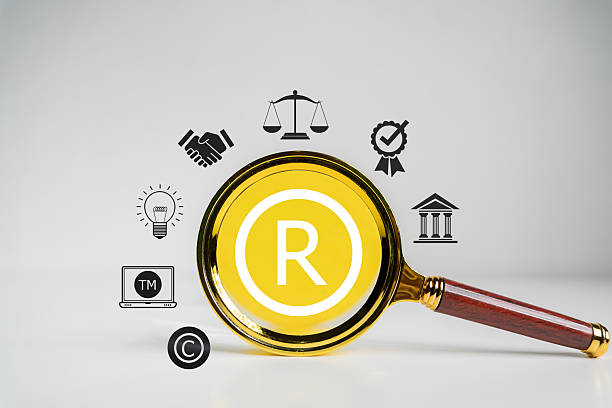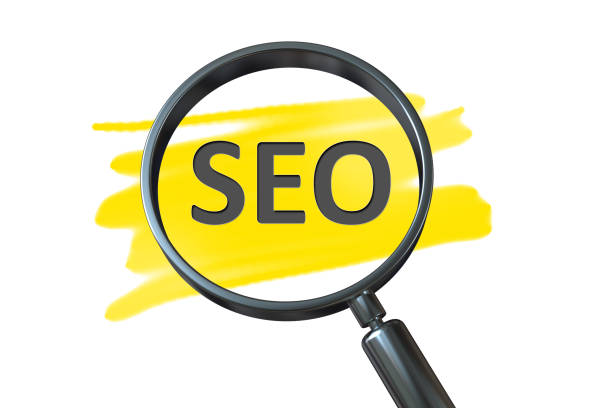An Introduction to SEO and Why It Matters

SEO or Search Engine Optimization (#SEO) is a process that helps increase the visibility of a website or web page in organic search engine results.
This process is not merely about ranking higher, but about attracting high-quality and relevant traffic to your website.
In today’s digital world, where competition for visibility has peaked, understanding SEO principles is vital for any business.
Imagine your website offers the best products or services, but no one knows about its existence; this is where the role of #Search_Engine_Optimization becomes prominent.
Search engines, especially Google, have become the primary source of information for billions of users worldwide.
When users look for something, they expect to see the most relevant and authoritative results.
The #explanatory and #educational nature of this process helps in understanding how complex search engine algorithms work.
The main goal of SEO is to improve your website’s position in search results so that when users search for keywords related to your business, they see your website at the top ranks.
This means more traffic, higher brand awareness, and ultimately, an increase in customers and sales.
A strong search engine optimization strategy allows you to get ahead of your competitors and have a powerful online presence.
Without a targeted approach to SEO, your website might get lost in the deluge of other content.
Therefore, the importance of SEO lies not only in achieving rankings but also in building lasting connections with target audiences and ensuring survival and growth in the digital ecosystem.
This optimization process requires continuous knowledge and updates, as search engine algorithms are constantly changing.
This type of content strategy significantly helps in website visibility.
Are you dissatisfied with your online store’s low sales?
Rasawweb is your solution for having a professional and high-selling online store.
✅ Significant increase in sales and revenue
✅ Easy and enjoyable shopping experience for customers
⚡ Get free consultation from Rasawweb now!
Types of SEO and Their Fundamental Differences

Understanding the different types of SEO is crucial for developing a comprehensive and effective strategy.
Generally, SEO is divided into three main categories: On-Page SEO, Off-Page SEO, and Technical SEO.
Each of these categories focuses on different aspects of your website and online presence, and together, they improve the overall performance of the website.
On-Page SEO refers to all actions you take within your website to improve its ranking.
This includes optimizing content, keywords, title tags, meta descriptions, URL structure, image optimization, and using internal links.
The main goal of On-Page SEO is to send clear signals to search engines about the topic and quality of your content.
This part of website optimization is directly under your control and is considered a specialized approach to increasing content ranking.
Off-Page SEO refers to activities performed outside your website aimed at increasing its authority and domain reputation.
The most important aspect of Off-Page SEO is building backlinks (inbound links from other websites).
However, it is not limited to backlinks and includes activities such as social media presence, influencer marketing, and brand mentions on other websites.
This type of SEO indicates the level of trust and referral others have in your content and is important for search engines.
Finally, Technical SEO focuses on optimizing the technical infrastructure of your website so that search engines can easily #crawl and #index it.
This includes improving page loading speed, mobile-friendliness, site structure, XML sitemaps, Robots.txt files, using HTTPS, and handling crawl errors.
A technically optimized website provides a better user experience and helps search engines better understand your content.
This category of SEO is very specialized and requires precise technical knowledge.
These three dimensions of optimization together form a comprehensive SEO strategy.
Keyword Research: The Foundation of a Successful SEO Strategy

Keyword research is the cornerstone of any successful SEO strategy.
This process involves finding the words and phrases that your target audience uses in search engines to find products, services, or information similar to what you offer.
Without a proper understanding of keywords, all your subsequent SEO efforts might be in vain.
The goal of keyword research is not just to find high-volume keywords, but to discover words that best reflect the users’ intent.
This educational aspect of SEO is very important.
Thought-provoking content plays a key role in this area; by asking questions like “What is my audience searching for?” or “What problem can I solve for them?” you can find valuable keywords.
Keyword research tools such as Google Keyword Planner, Ahrefs, Semrush, and KWFinder help you identify relevant keywords, estimate their search volume, and assess the competition difficulty for each word.
Additionally, special attention should be paid to #long-tail_keywords.
These longer, more specific phrases, although having lower search volume, often indicate stronger purchase intent and have less competition.
Competitor analysis is also an important part of keyword research.
By examining the keywords your competitors rank for, you can identify new opportunities and improve your weaknesses.
Finally, guidance and the natural and unexaggerated use of these keywords in your website’s content, titles, meta descriptions, and internal links should be observed to maintain user experience and avoid search engine penalties.
This process is an analytical approach to search engine optimization.
| Intent Type | Description | Keyword Examples |
|---|---|---|
| Informational | User is looking to gain information. | “What is SEO?”, “Benefits of meditation”, “How to code” |
| Navigational | User wants to go to a specific website or page. | “Digikala”, “Instagram login”, “Bank Melli website” |
| Commercial Investigation | User is researching for a future purchase. | “Best laptop 2024”, “Samsung vs LG TV comparison” |
| Transactional | User intends to make a purchase or perform a specific action. | “Buy iPhone”, “Order pizza”, “Book Shiraz hotel” |
Content Optimization for Search Engines and Users

After keyword research, the next step in the SEO strategy is to produce high-quality content and optimize it for search engines and, more importantly, for users.
Content is king; this statement holds true more than ever in the world of SEO.
Search engines aim to provide the best and most relevant answers to users’ questions, so your content should not only be informative but also engaging, comprehensive, and trustworthy.
Explanatory and guiding content is very effective at this stage.
To optimize content, you must first ensure that your target keywords are naturally and logically incorporated into the text.
Avoid overusing keywords (#keyword_stuffing), as this can harm your ranking.
Headings and subheadings (H1, H2, H3…) should clearly outline the structure of your content and include relevant keywords.
Using images and videos with appropriate Alt tags not only adds visual appeal to the content but also helps search engines better understand your content.
This is an educational approach to improving website visibility.
Content quality goes beyond keywords.
Your content should be deep and comprehensive and address all aspects of the topic.
Thought-provoking content can add value by answering common user questions.
Ensure your content is original and not plagiarized.
Fluent writing, correct grammar, and flawless spelling are also of high importance.
Internal linking to other relevant pages on your website helps both users find more information and search engines understand your website’s structure.
Ultimately, specialized content that is valuable not only improves your SEO ranking but also encourages audiences to spend more time on your website and convert into loyal customers.
Does your current corporate website present a worthy image of your brand and attract new customers?
If not, turn this challenge into an opportunity with Rasawweb’s professional corporate website design services.
✅ Significantly improves your brand’s credibility and image.
✅ Paves the way for attracting new leads and customers.
⚡ Contact Rasawweb now for free and specialized consultation!
Technical SEO: The Foundation of Your Website’s Health

Technical SEO might seem invisible to many, but it is the backbone of any website with excellent performance in search engines.
This aspect of SEO focuses on improving the technical aspects of the website so that search engines can effectively crawl, index, and rank it.
Without a strong technical foundation, even the best content might never reach the target audience.
This section is highly specialized and requires precision.
One of the most important factors in technical SEO is page loading speed.
Users and search engines hate slow websites.
Low speed not only disrupts the user experience but can also harm your SEO ranking.
Optimizing images, compressing files (CSS, JavaScript), using caching, and choosing a fast hosting provider are among the ways to increase website speed.
Mobile-friendliness is also a critical ranking factor, especially given the increasing number of searches via mobile devices.
Your website should display well and be functional on all screen sizes, from desktops to mobile phones.
Website security, especially the use of HTTPS protocol (indicated by a green lock in the browser), not only builds user trust but is also a ranking factor for Google.
Other important aspects of technical SEO include appropriate URL structure, creating XML sitemaps (XML Sitemaps) to help search engines find important pages, Robots.txt files to control crawler access, and handling crawl errors (like 404 errors).
A precise and analytical analysis of these factors can ensure the overall SEO health of your website.
Backlinks and Their Key Role in Domain Authority

In the world of SEO, backlinks (Backlinks) act like votes your website receives from other websites.
Each quality backlink is a vote of confidence from another website to your content, indicating that your content is valuable, authoritative, and trustworthy.
Search engines, especially Google, use backlinks as an important ranking factor to determine the credibility and authority of a domain.
The more authoritative and relevant websites link to you, the higher your Domain Authority will be, increasing your chances of achieving higher rankings in search results.
This part of the SEO guide is vital for understanding website credibility.
More important than the number of backlinks is their quality.
Worthless or spam links can harm your ranking.
In contrast, backlinks from relevant, high-authority websites with appropriate anchor text are very valuable.
Specialized backlink building strategies include creating linkable assets such as infographics, in-depth research articles, or free tools, broken link building, collaborating with influencers, and requesting links from relevant websites.
Also, active presence on social media and increasing the sharing of your content can indirectly help increase backlinks.
A precise analysis of competitor backlink profiles can provide new link-building opportunities for you.
Natural and organic backlinks, which are created without direct request and simply due to the high quality of your content, are the best type of backlinks.
Ultimately, focusing on building lasting relationships with other webmasters and producing content that is inherently worthy of linking is the core of a successful SEO strategy based on backlinks.
Keep in mind that link building is a time-consuming process and its results usually do not appear quickly, but its long-term impact on your website’s ranking and authority is unparalleled.
Local SEO: Attracting Regional Customers

Local SEO is a branch of SEO that focuses on improving your website’s visibility in local search results.
For businesses that serve customers in a specific geographical area, such as restaurants, shops, clinics, or service businesses, local SEO is of vital importance.
When users search for phrases like “restaurant near me” or “AC repairman in Isfahan,” Google prioritizes local results.
This type of guidance greatly helps small businesses.
The backbone of local SEO is the Google My Business (GMB) profile.
Fully optimizing your GMB profile, including accurate business information (Name, Address, Phone Number – NAP), selecting appropriate categories, adding business hours, high-quality photos, and responding to customer reviews, is very important.
Explanatory and complete information helps Google better understand your business and display it to users in local results.
In addition to GMB, other important factors in local SEO include: Local Citations, which means mentioning your business’s name, address, and phone number on other websites (like local directories); Customer Reviews and Ratings, which play a significant role in user trust and search engine rankings; optimizing website pages for local keywords; and local link building (acquiring backlinks from relevant local websites).
Local SEO is a specialized and practical SEO that enables businesses to more effectively reach their nearby audience and, consequently, attract more sales and potential customers.
| Key Factor | Description | Impact on Local SEO |
|---|---|---|
| Google My Business (GMB) Profile | Business information, photos, business hours on Google. | Foundation for visibility in Google Maps and Local Pack. |
| Customer Reviews and Ratings | User reviews about the business. | Increases credibility, user trust, and is a ranking factor. |
| Local Citations | NAP mention in local directories and websites. | Validation and helps search engines confirm information. |
| Local Keyword Optimization | Using city/region name in content and titles. | Matches users’ geographical searches. |
| Mobile User Experience | Website usability on mobile devices. | High importance in local searches, primarily done on mobile. |
Off-Page SEO: Beyond Backlinks

Although backlinks are the most important part of Off-Page SEO, this area is not limited to link building.
Off-Page SEO includes all activities performed outside your website that help improve its credibility, visibility, and ranking in search engines.
The main goal of these actions is to increase the trust and authority of search engines in your website through signals received from external sources.
This section is explanatory of SEO expansion.
One of the key aspects of Off-Page SEO is social media signals.
Although Google does not directly consider social media shares or likes as a ranking factor, strong activity on these platforms can indirectly help your SEO.
Increasing brand awareness, driving traffic to the website, and encouraging content sharing, which can lead to natural link building, are among the benefits of an active social media presence.
This approach can also be a form of news dissemination and quickly spread your content.
Brand Mentions without links can also be an important signal for search engines.
When your brand name is mentioned in articles, blogs, forums, or podcasts, without a link to your website, this is also considered a sign of credibility and popularity.
Influencer Marketing and participation in relevant online forums and communities can also help increase your brand’s visibility and authority.
Off-site content marketing, such as publishing guest articles on other websites or participating in webinars, not only allows you to share your expertise but can also lead to referral traffic and link-building opportunities.
In summary, Off-Page SEO focuses on building your website’s authority and credibility in the eyes of search engines and users, which is essential for long-term SEO success.
Does your current website adequately showcase your brand’s credibility? Or does it scare away potential customers?
Rasawweb, with years of experience in professional corporate website design, is your comprehensive solution.
✅ A modern, beautiful website tailored to your brand identity
✅ Significant increase in lead generation and new customer acquisition
⚡ Contact Rasawweb now for free corporate website design consultation!
Monitoring and Analyzing SEO Performance: Essential Tools for Continuous Optimization

SEO is not a one-time process, but a continuous effort requiring constant monitoring and analysis.
To ensure that your SEO strategies are effective and contribute to your business goals, you need to regularly review and analyze your website’s performance.
This section is an analytical and educational part of the SEO process.
Two main and essential tools for every SEO professional are Google Analytics and Google Search Console.
Google Analytics provides comprehensive information about your website’s traffic, including traffic sources (organic search, referral, direct, social media), user behavior (pages visited, time on site, bounce rate), and conversions (sales, sign-ups).
By analyzing this data, you can understand how users interact with your website and which sections need improvement.
Google Search Console is a tool that helps you monitor your website’s performance in Google search results.
This tool provides information about the keywords your website ranks for, the number of clicks, click-through rate (CTR), average ranking position, and any technical issues (such as crawl errors).
This information is invaluable for identifying new keyword opportunities, improving content, and fixing technical issues that may affect your SEO.
In addition to these Google tools, there are other paid tools such as Ahrefs, Semrush, and Moz that offer more advanced capabilities like competitor analysis, backlink monitoring, and keyword rank tracking.
Regular monitoring of these metrics helps you identify trends, respond to algorithm changes, and continuously optimize your SEO strategy to achieve the best results.
This continuous optimization process ensures sustainable growth in the online space.
The Future of SEO and New Trends in Search Engine Optimization

The world of SEO is constantly evolving.
Search engine algorithms are becoming smarter, and user search methods are also changing.
To stay at the forefront of the competition, it is essential to be familiar with new SEO trends and update your strategies accordingly.
This section is news-related and entertaining, addressing future aspects of SEO.
One of the most important future trends is Voice Search (Voice Search).
With the increasing popularity of voice assistants like Siri, Google Assistant, and Alexa, optimizing for voice search is becoming increasingly important.
Voice searches are typically longer, more conversational, and question-based.
Therefore, producing content that answers users’ questions in natural language and focuses on long-tail and conversational keywords will be very important.
Artificial Intelligence (AI) and Machine Learning (Machine Learning) play an increasing role in search engine algorithms.
Algorithms like Google’s RankBrain understand web content better than ever before.
This means a greater focus on content quality, user experience, and semantic relevance rather than solely relying on keywords.
The specialized nature of these algorithms doubles the need for producing very high-quality and comprehensive content.
Video SEO (Video SEO) is also growing.
With the popularity of platforms like YouTube and TikTok, optimizing videos for search has become an important factor.
Using appropriate titles, descriptions, and tags, and providing valuable video content, can help you gain visibility in video search results.
Finally, User Experience SEO (UX SEO), which focuses on page speed, mobile compatibility, and website navigation ease, will continue to be a vital factor.
Investing in these trends will help you lead the future of SEO, rather than just follow.
This is an analytical view of the future of SEO.
Frequently Asked Questions
| Question | Answer |
|---|---|
| What is SEO? | SEO, or Search Engine Optimization, is a process to increase the quality and quantity of website traffic by improving the site’s ranking in natural (organic) search engine results like Google. |
| What are the main types of SEO? | SEO is divided into three main categories: On-Page SEO, Off-Page SEO, and Technical SEO. |
| What does On-Page SEO include? | On-Page SEO includes optimizing elements within the website, such as keywords, Title Tag, Meta Description, content, URL structure, images, and internal links. |
| What is Off-Page SEO? | Off-Page SEO refers to activities outside the website that help improve its ranking, such as Backlink Building, social media marketing, and Brand Mentions. |
| What is Technical SEO? | Technical SEO focuses on optimizing the technical aspects of a website to help it be better crawled and indexed by search engines. This includes site speed, mobile-friendliness, site structure, Sitemaps, and Robots.txt file. |
| What role do Keywords play in SEO? | Keywords are phrases that users enter into search engines. Proper and targeted use of relevant keywords in content and site elements helps search engines understand the topic of your page and display it for relevant searches. |
| What is a Backlink and why is it important? | A backlink, or inbound link, is a link from one website to another website. Backlinks act as a “vote of confidence” from other sites for search engines and play an important role in the website’s authority and ranking improvement, especially if they are from reputable sites. |
| What impact does quality content have on SEO? | Quality content, which is relevant, comprehensive, and unique, not only attracts and retains users but also shows search engines that your page is valuable. This helps improve ranking, reduce Bounce Rate, and increase user time spent on the site. |
| Why is site loading speed important for SEO? | Site loading speed is an important ranking factor for Google. Faster sites provide a better user experience, have lower bounce rates, and are preferred by search engines. |
| Is SEO a one-time process? | No, SEO is a continuous and long-term process. Search engine algorithms are constantly changing, competition is increasing, and website content also needs updates. Therefore, SEO requires continuous monitoring, analysis, and optimization. |
And other services of Rasawweb Advertising Agency in the field of advertising
Smart Social Media: A professional solution for digital branding with a focus on optimizing key pages.
Smart Advertorial: A new service to increase user engagement through attractive UI design.
Smart Website Development: A new service to increase customer acquisition through marketing automation.
Smart Brand Identity: A creative platform to improve website traffic with attractive UI design.
Smart SEO: A fast and efficient solution for digital branding with a focus on custom programming.
And over hundreds of other services in the field of internet advertising, advertising consultation, and organizational solutions
Internet Advertising | Advertising Strategy | Advertorial
Sources
Digikala Mag’s Complete SEO Guide Namnak Site SEO Optimization IranTranslate SEO Content Strategy Tavanir Company’s Important SEO Tips
? Are you looking to increase your online presence and grow your business? Rasawweb Afarin, your digital marketing agency, is ready to help you reach the peak of success by providing comprehensive services including secure website design and SEO optimization.
📍 Tehran, Mirdamad St., next to Bank Markazi, Kazerun Jonubi Alley, Ramin Alley, No. 6




